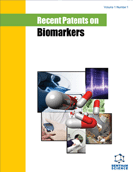Abstract
Previously, preliminary results of our researches showed that, mobile phone radiofrequency radiation does not affect human serum in an in vitro immunoenzymometric assay. However, we stated that the results should be confirmed in a larger series and employing different exposure doses on a specific hormone. Considering this statement, the aim of this study was to investigate whether the exposure from a 900MHz cell phone can affect the thyroid Triiodothronine (T3) levels in human serum. In addition, a review of the recent patents in radiation and immunoenzymometric assays is also presented. Human serum samples from 63 healthy donors were placed into two groups, and the well heads in the first group were exposed to 900MHz exposure emitted from a GSM mobile phone (Nokia, Model 1202, India) with 1.09Watt per kilogram (W/kg) of the tissue locally in the head specific absorption rate for 30 minute. Unexposed group was served as the control sample under identical conditions and was compared with the exposed one in quantitative determination of T3 using the Wilcoxon test with criterion level of P = 0.050. There was no significant difference in serum T3 in the exposed group compared to the control group (P > 0.05). According to this study, mobile phone radiation at frequency of 900MHz does not affect human T3 hormone in an in vitro immunoassay under the conditions used.
Keywords: Biomarkers, human thyroid hormone, immunoassay technique, mobile phone, radiofrequency radiation, triiodothronine.
 16
16

